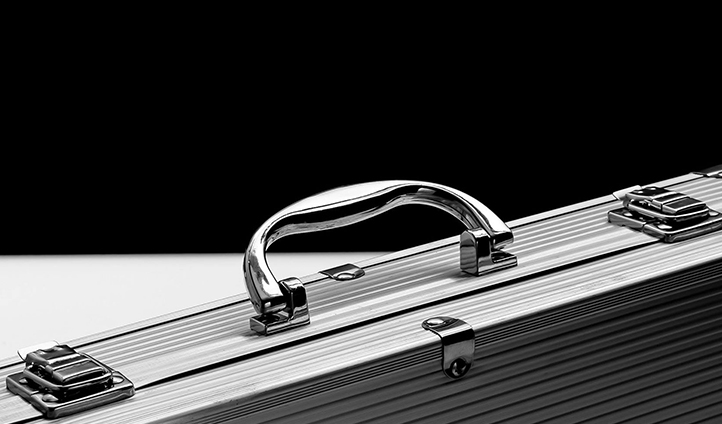SCOTUS Issues Key Insider Trading Ruling in Salman v United States

The Supreme Court recently rendered its much-anticipated decision in Salman v United States, 580 U. S. ____ (2016). The Court’s unanimous decision, which held that gifts of confidential information from corporate insiders to relatives violate federal securities regulations, is predicted to make it easier for the federal government to prosecute charges of insider trading.
Insider Trading Precedent
Section 10(b) of the Securities Exchange Act of 1934 and the Securities and Exchange Commission’s Rule 10b–5 prohibit undisclosed trading on inside corporate information by persons bound by a duty of trust and confidence not to exploit that information for their personal advantage. Corporate insiders are also prohibited from sharing inside information to others for trading. An individual who receives such information (often called a “tippee”) with the knowledge that its disclosure breached the tipper’s duty may be liable for securities fraud for any undisclosed trading on the information.
In Dirks v. SEC, 463 U. S. 646, the Court held that tippees can’t trade on material nonpublic information if the information came from an insider who breached his fiduciary duty to the company’s shareholders by disclosing the information for “personal gain,” and the tippee is aware of these facts. The Supreme Court further held that “[t]he elements of fiduciary duty and exploitation of nonpublic information also exist when an insider makes a gift of confidential information to a trading relative or friend,” as “[t]he tip and trade resemble trading by the insider himself followed by a gift of the profits to the recipient.”
Facts of Salman v United States
Bassam Salman was indicted for federal securities-fraud crimes for trading on inside information he received from a friend and relative-by-marriage, Michael Kara, who, in turn, received the information from his brother, Maher Kara, a former investment banker at Citigroup. Salam challenged his convictions for conspiracy and insider trading, arguing that he could not be held liable as a tippee because the tipper (his brother-in-law) did not personally receive money or property in exchange for the tips and thus did not personally benefit from them.
In support, Salman cited the Second Circuit Court of Appeals decision in United States v. Newman. It held that Dirks does not permit a factfinder to infer a personal benefit to the tipper from a gift of confidential information to a trading relative or friend, unless there is “proof of a meaningfully close personal relationship” between tipper and tippee “that generates an exchange that is objective, consequential, and represents at least a potential gain of a pecuniary or similarly valuable nature.” The Ninth Circuit declined to follow Newman, holding that Dirks allowed the jury to infer that the tipper here breached a duty because he made a “‘gift of confidential information to a trading relative.’”
The Court’s Decision in Salman v United States
The Supreme Court upheld the Ninth Circuit’s decision, agreeing that insider trading liability exists “when an insider makes a gift of confidential information to a trading relative or a friend.” Justice Samuel Alito wrote on behalf of the unanimous Court.
In reaching its decision, the Court rejected the argument that a tipper does not personally benefit unless the tipper’s goal in disclosing information is to obtain money, property, or something of tangible value. “By disclosing confidential information as a gift to his brother with the expectation that he would trade on it,” Justice Alito explained, “Maher breached his duty of trust and confidence to Citigroup and its clients — a duty Salman acquired, and breached himself, by trading on the information with full knowledge that it had been improperly disclosed.”
The Supreme Court also agreed that the Second Circuit interpretation of Dirks was incorrect. “To the extent the Second Circuit held that the tipper must also receive something of a ‘pecuniary or similarly valuable nature,’ in exchange for a gift to family or friends,” Justice Alito wrote, “we agree with the Ninth Circuit that this requirement is inconsistent with Dirks.”
Previous Articles
Justices Skeptical of Trump Administration Tariffs
by DONALD SCARINCI on December 18, 2025
The U.S. Supreme Court heard oral arguments in Learning Resources, Inc. v. Trump (consolidated with...
SCOTUS Takes Up Key Election Case Involving Mail-In Ballots
by DONALD SCARINCI on December 17, 2025
The U.S. Supreme Court recently granted certiorari in a key election case, Watson v. Republican Nat...
SCOTUS Adds Second Amendment Case to Docket
by DONALD SCARINCI on November 27, 2025
The U.S. Supreme Court will consider another important Second Amendment case this term. The latest ...
The Amendments
-
Amendment1
- Establishment ClauseFree Exercise Clause
- Freedom of Speech
- Freedoms of Press
- Freedom of Assembly, and Petitition
-
Amendment2
- The Right to Bear Arms
-
Amendment4
- Unreasonable Searches and Seizures
-
Amendment5
- Due Process
- Eminent Domain
- Rights of Criminal Defendants
Preamble to the Bill of Rights
Congress of the United States begun and held at the City of New-York, on Wednesday the fourth of March, one thousand seven hundred and eighty nine.
THE Conventions of a number of the States, having at the time of their adopting the Constitution, expressed a desire, in order to prevent misconstruction or abuse of its powers, that further declaratory and restrictive clauses should be added: And as extending the ground of public confidence in the Government, will best ensure the beneficent ends of its institution.





